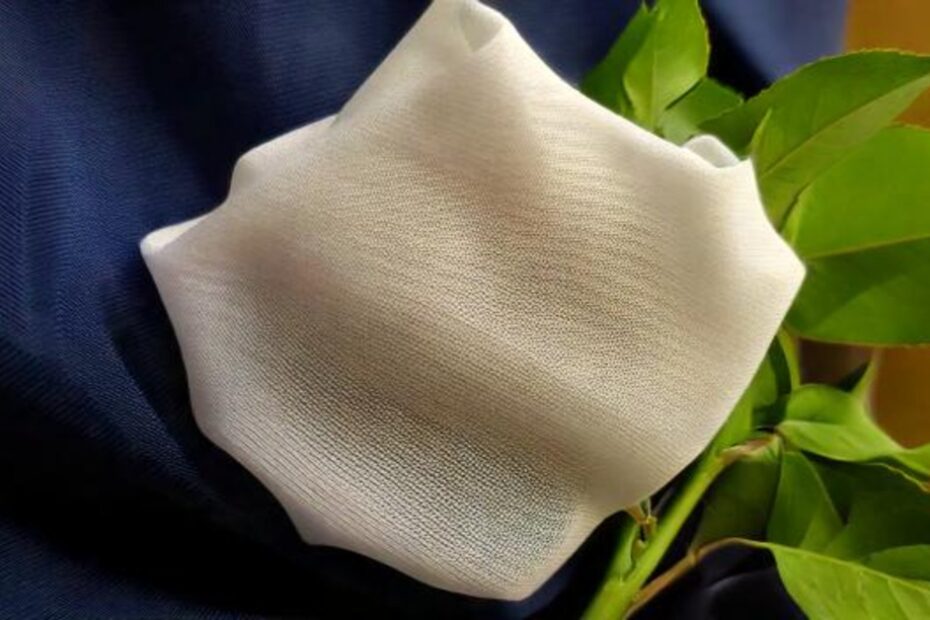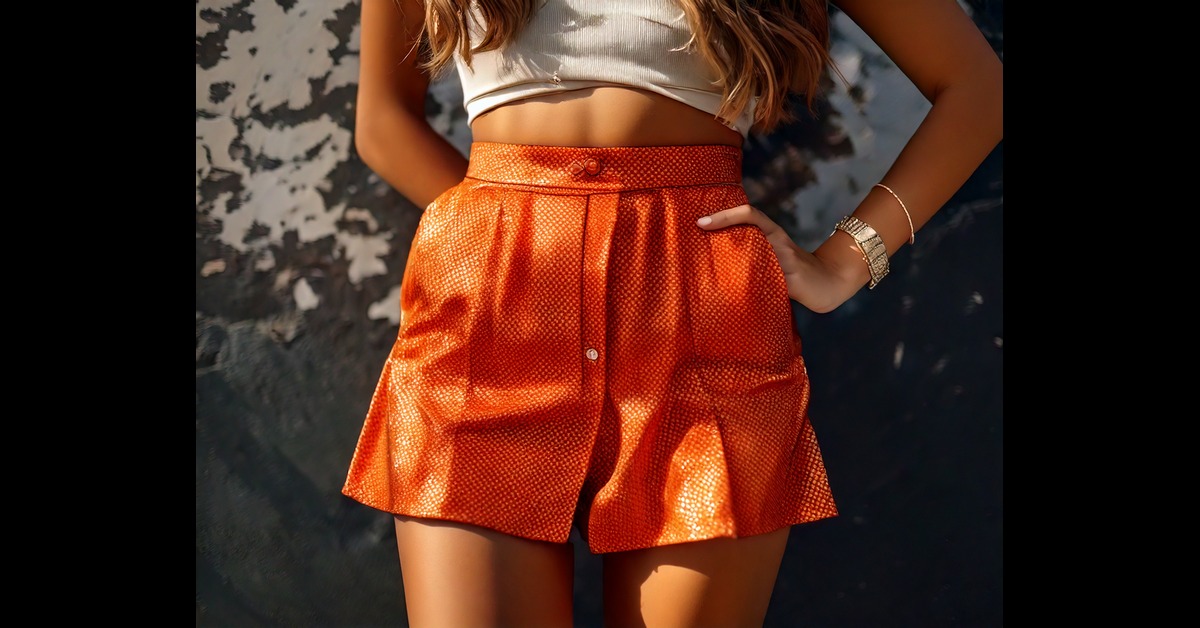Polyester vs cotton is another decision between two materials that are different in many aspects – starting with the comfort and breathability and ending with the durability and the need for care. These two fabrics have peculiar features that make them ideal for different applications or usage depending on one’s need for casual wear or special wares. In this article, you will find detailed information on the aspects of polyester and cotton and the benefits and drawbacks of each material, which will come in handy when choosing clothes for your closet.
What To Expect In This Article?
What Does Polyester Feel Like?

Polyester is a type of synthetic fabric characterized by a smooth, slightly slippery feel that is easy to touch. It is smooth to the touch and has limited elasticity, owing to which it is used in sporting apparel and windbreaker jackets. That is why polyester is relatively popular for activewear since it can quickly transfer sweat away from the user’s skin, keeping it dry when performing rigorous activities.
What Does Cotton Feel Like?

Cotton, on the other hand, is a natural fiber that is very popular due to its softness and its ability to allow air to pass through it. It is very comfortable and lightweight, perfect for day-to-day use as well as for sleepwear. Who among us has never worn a simple t-shirt made of cotton or a simple pair of cotton pajamas that provides comfort? Organic fibers let fresh air in, and that makes cotton wear more comfortable in hot climatic conditions.
Difference Between Cotton and Polyester: Key Characteristics

Learning about what’s the difference between polyester and cotton makes it easy for anyone to distinguish the fabric according to events.
- Breathability: All in all, cotton absorbs moisture and is much cooler than polyester when it is hot out. This is why, for instance, cotton is widely used in summer clothes with additional ventilation and the ability to absorb moisture.
- Durability: Polyester is more resilient than cotton and does not wear out quickly, expand, or shrink. It also means that polyester is one of the most suitable materials for activewear and any clothing item that has to be washed quite often.
- Moisture Management: Cotton, on the other hand, soaks up moisture and feels heavy, especially when wet, while polyester draws moisture away from you and does not feel wet. This property is highly relevant in activewear and outerwear.
Is Polyester Breathable?
One of the common questions is, is polyester breathable? While polyester isn’t as breathable as cotton, advancements in textile technology have made it more comfortable. Polyester’s moisture-wicking properties allow it to keep you dry, which can compensate for its lower breathability in certain situations.
Is Cotton Cooler Than Polyester?
People who have not been sure if cotton is cooler than polyester? The answer is yes. Due to the breathability of cotton fabric, it tends to be cooler in hot climates than synthetic fabric. This is why polyester vs cotton in summer tends towards the side of cotton to avoid sticking the skin in hot weather.
Blends of Polyester and Cotton: The Best of Both Worlds
Poly-cotton blends both materials of polyester and cotton as their properties combine the two fabrics’ advantages. A conventional poly-cotton blend offers the comfort and elasticity of fibers derived from cotton with additional sturdiness and fade resistance of polyester. These blends are used for casual wear apparel, working wear apparel, and home textiles. For instance, the best winter fabrics normally consist of a poly-cotton combination in order to provide warmth as well as comfort.
When to Choose Polyester vs Cotton — Practical Tips
Polyester vs Cotton in Summer
During summer, quick absorption of moisture makes cotton of great value, hence the option. However, if you engage in activities that make you sweat, polyester’s moisture-wicking properties can be advantageous. This makes polyester vs cotton a decision based on the choice and energy level of the wearer in summer.
Polyester vs Cotton in Winter
When it comes to choosing between polyester vs cotton in winter, polyester fabrics have better insulating capacity. It retains heat more than cotton and dries quicker; it is good for winter wear, like puffer jackets and puffer vests. Cotton on its own is soft and cozy, though it retains moisture, and it can leave you feeling cold, especially in winter.
Benefits of Polyester vs Cotton
Both polyester and cotton offer distinct advantages that cater to different needs. Here’s a closer look at the benefits of polyester vs cotton:
- Durability: Polyester outperforms cotton in terms of durability, making it less prone to wear and tear. This makes it a popular choice for items that see heavy use, such as sportswear and work uniforms.
- Comfort: Cotton is more comfortable for everyday wear thanks to its softness and breathability. It’s also hypoallergenic, making it suitable for those with sensitive skin.
- Maintenance: Polyester does not wrinkle or shrink easily – and is, therefore, very easy to take care of. Cotton needs some special attention in washing and ironing to retain its appearance.
Cotton vs Polyester Comfort Comparison
During the cotton vs polyester comfort comparison, cotton takes the crown when it comes to people looking for a soft and natural feel. Although not as comfortable as nylon, polyester has many advantages – it is perfect for exercising and any outdoor activities, as it will do a very good job of absorbing moisture and thus keeps users very dry.
How to Choose Between Polyester and Cotton
When selecting these fabrics, polyester fabric is much more resilient than cotton fabric; it is rarely stained.
- For Comfort: Cotton is more often used for comfort, which people find more appealing when used in warm climates or for casual occasions.
- For Durability: Polyester, for instance, is more durable and resilient to weather and water, ensuring it’s appropriate for outdoor wear or activewear.
- For Maintenance: Polyester fabric is easier to manage than cotton because the cotton fabric may develop wrinkles and shrinkage if not handled well.
Pros and Cons of Cotton vs Polyester
Pros of Cotton
- Soft and Comfortable: Cotton’s natural fibers provide a soft, cozy feel.
- Breathable: Ideal for warm weather and everyday wear.
- Hypoallergenic: Suitable for those with sensitive skin.
Cons of Cotton
- Prone to Wrinkling and Shrinking: Requires careful washing and ironing.
- Absorbs Moisture: Can feel heavy and damp when wet.
Pros of Polyester
- Durable and Long-Lasting: Resistant to stretching, shrinking, and wrinkles.
- Moisture-Wicking: Keeps you dry during physical activities.
- Easy to Care For: Quick-drying and low-maintenance.
Cons of Polyester
- Less Breathable: You may feel less comfortable during hot weather.
- Synthetic Feel: Not as soft nor natural as cotton.
Fabric Maintenance — Polyester vs Cotton
Maintenance of polyester fabric is easier than maintenance of cotton. It does not wrinkle easily, it is quick-drying, and it does not shrink, thereby making it suitable to fit various busy lifestyles. Cotton is softer than wool, though it needs a lot of work to remain soft and well-shaped.
FAQs
Which is Better for Hot Weather: Polyester or Cotton?
Cotton is better for hot weather due to its breathability and moisture-absorbing qualities. It keeps you cool and comfortable, making it ideal for summer clothing.
How Does Polyester Compare to Cotton for Activewear?
Polyester is superior for activewear because of its moisture-wicking properties and durability. It keeps you dry and holds up well during intense physical activities.
What is the Biggest Disadvantage of Polyester?
The biggest disadvantage of polyester is its lack of breathability, which can make it uncomfortable in hot weather. Its synthetic feel may also not be as pleasant for those who prefer natural fabrics.
What is the Biggest Disadvantage of Cotton?
The biggest disadvantage of cotton is its tendency to wrinkle and shrink. It also holds moisture, which can make it feel heavy and damp, particularly in cooler or wetter conditions.
Conclusion
In choosing between polyester and cotton, there is no problem recommending one since your choice actually depends on you. It can be soft, lightweight, and highly respiring, so it features leisure and especially summer wear. With durability and property of moisture absorption, polyester is good for activewear and winter wear. Thus, knowing the difference between cotton and polyester, you can choose which fiber fits your life better and meets your need for comfort, versatility, and practicality in your clothes.
To learn more about fabric types, you may also look into mesh fabric and what is satin fabric, as both of these materials have properties that are suitable for different clothing usages.




